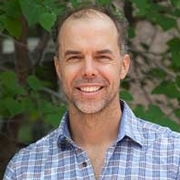I see two principal challenges facing the Society today: integration and engagement. Like in much of our collective scientific research, we are often compelled to make simplifying assumptions about processes and perspectives for the sake of producing quantifiable and explainable results. However, today our science, and its application in societal decision-making, now challenges many traditional discipline- and sector-specific assumptions and approaches. Technological advancement itself has proven to be both a great accelerator of scientific advancement as well as a great disruptor of traditional approaches, particularly for observations and geospatial information exchange and dissemination. The AMS needs to find new ways to help accelerate the integration between different scientific disciplines as well as the historically contentious relationships between various public, academic and private sectors. From my perspective, these disciplinary and sector divisions no longer serve our science or our larger society well. Throughout my professional career, I’ve had the good fortune to work within the private and academic research sectors and am now deeply engaged in the development and evolution of an operational prediction system with NOAA (the National Water Model) which has provided an intricate view into the motivations and constraints of the public/agency sector. The successful partnerships I’ve seen have very consistent traits where the collaborating parties engage each other with curiosity, patience and respect, while failures are, unfortunately, consistently fraught with preconceptions, inflexibility and protectionism. These traits hold true for both disciplinary and sector related collaborations.
AMS sits in a unique position to motivate our community to evolve towards more consistently positive and engaging approaches to advancing our science and resolving many of our most difficult weather, climate and water related problems. While climate change clearly takes center stage in many such discussions, there are a host of other problems related to the understanding, forecasting and communication of extreme weather and hydrologic events and their risks which need to remain prominent or be elevated in our community discourse. To solve these problems we need to get the participation of the full community engaged in the so-called ‘Research to operations-and-Operations to research’ development cycle for our prediction systems. The full community also needs to be engaged in dealing with the myriad anthropogenic-related issues, both unintentional and intentional, facing our science today. I believe AMS does and can continue to play a principle role in advancing integration and engagement by accelerating understanding and synthesis of science, policy and their implications across disciplinary and sector divisions and also across age demographics, which lie at the forefront and sustainable success.
If selected to participate on the AMS Council I would seek to bring the experiences I’ve had in weather, climate and water communities as well as in the private, academic and public sectors to discussion of the issues mentioned above. More specifically, I would like to work with the Council, through its various committees, on addressing ways to improve disciplinary and sector integration as well as improving engagement across the Society to help accelerate the production of weather, climate and water intelligence from our science.
